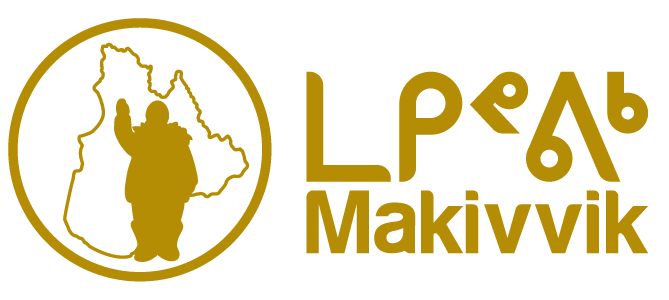Press Release
Montreal, Quebec, April 27, 2011
Pita Aatami, President of Makivvik and lino Ferrara, Chairman of the Board of Directors of CHEZ DORIS, signed today a partnership agreement to support Inuit women who are in a vulnerable situation or homeless in Montreal.
The purpose of the agreement is to establish formai collaboration between Makivvik, organization that represents the 10,000 Inuit of Nunavik, northern Quebec, and CHEZ DORIS, a daytime shelter in Montreal. CHEZ DORIS supports women including several Inuit women, by providing social, educational and practical assistance in a secure and accepting environment.
As a tangible project of this partnership agreement, Makivvik and CHEZ DORIS are pleased to announce the hiring of Annie Pisuktie as Inuit Street Case Worker. Annie originally from Iqaluit, Nunavut, brings to the job a wealth of knowledge and experience in this field. Annie now a new member of CHEZ DORIS’s staff will conduct outreach activities to connect with Inuit women from wherever they come originally, manage emergency situations to ensure everyone’s safety, and ensuring provision of adequate social and medical services.
Makivvik will also facilitate relations and collaboration between CHEZ DORIS and Nunavik Inuit organizations and with other groups representing Inuit from Nunavut and labrador. Although Nunavik Inuit represent the majority of
Inuit living in Montreal, there are also several Inuit from Nunavut and labrador who also live in Montreal.
As for the Chairman of CHEZ DORIS, lino Ferrara: “the signing of this partnership agreement with Makivvik, enhances greatly CHEZ DORIS’ objectives. CHEZ DORIS has been at the heart of women’s needs for over 30 years. Things happen for a reason, the hard part is realizing what that reason is. So let’s keep moving forward, always believing in ourselves and the women we serve”.
As for the President of Makivvik, Pita Aatami: “the causes of Inuit homelessness are rooted in northern regions, including Nunavik. Nunavik Inuit have experienced drastic changes in the last 60 years which had and are having major impacts on our people: changes of roles of men and women, erosion of Inuktituut language, high level of suicide, high school dropout, major violence, and poverty. Inuit are dealing with an historical trauma, the cumulative effect of massive social change forced on the Inuit over a very short period of time”.
ln the continuation of the development of its strategy and action plan on Inuit homelessness, Makivvik will continue its discussions with other Inuit organizations, with
institutions or groups providing social services to the homeless in Montreal, the City of Montreal, and the governments of Quebec and Canada and the private sector.
For Pita Aatami: “Makivvik intends to continue these discussions with the objective to establish true partnerships, and we will then be able to alleviate Inuit homelessness and bring support to those Inuit in need”.
For Makivvik, preventing Inuit homelessness is the most important objective to be achieved, and that means to try to meet the basic needs of these Inuit by providing adequate housing for Inuit men, women and children, adequate income and integration efforts, and provision of adequate support services, including the establishment of social and cultural networks, promotion of healthy lifestyles, assisting Inuit in adjusting to life in urban environments, availability of country food, services for the children.
-30-
For additional information:
Kitty Gordon
Communications officer
Société Makivvik
514-745-8880
kgordon@makivik.org
